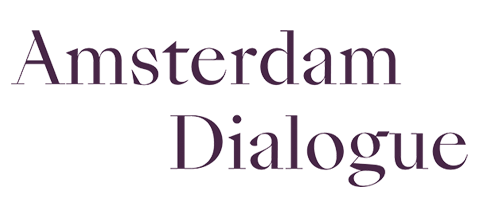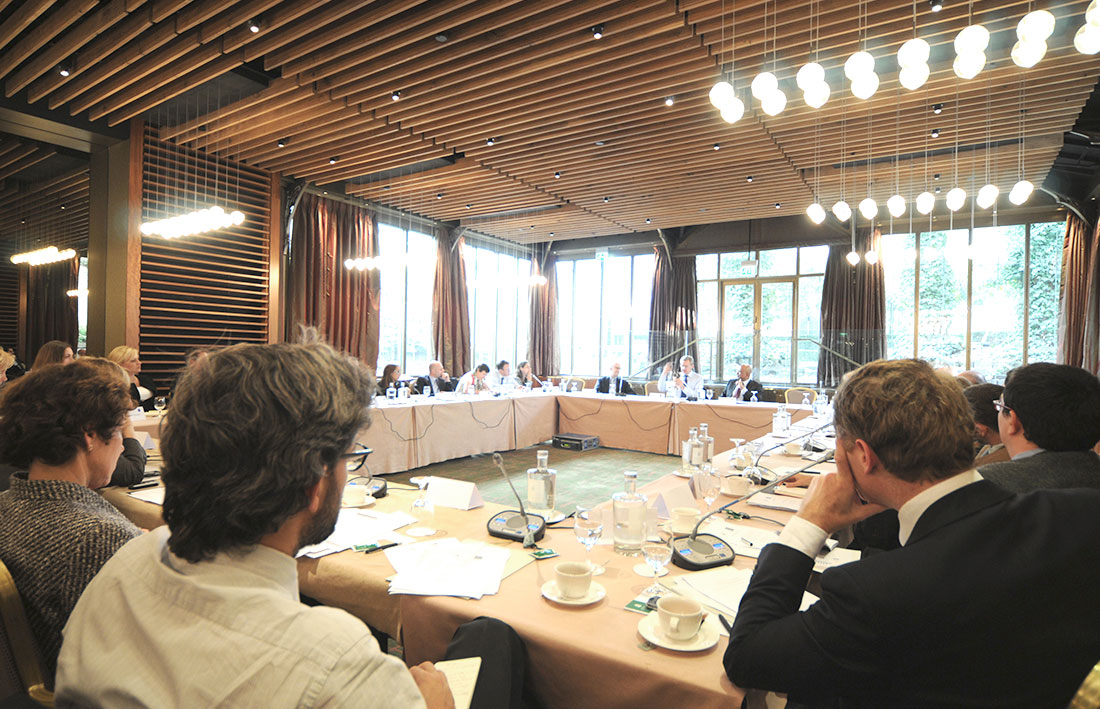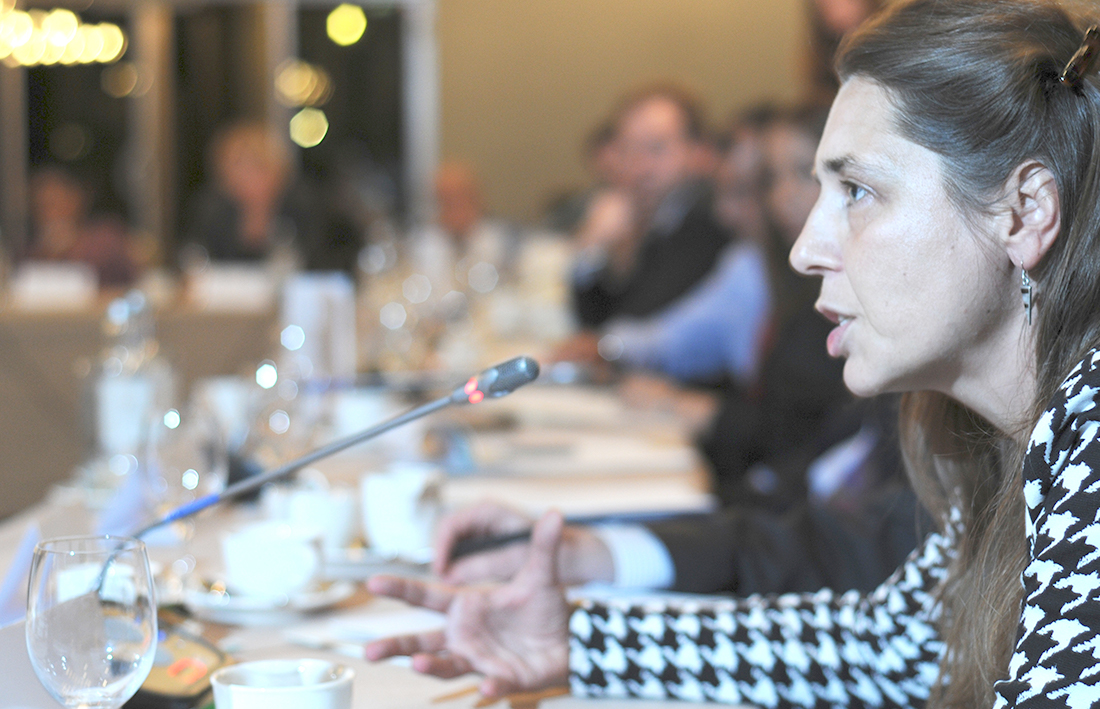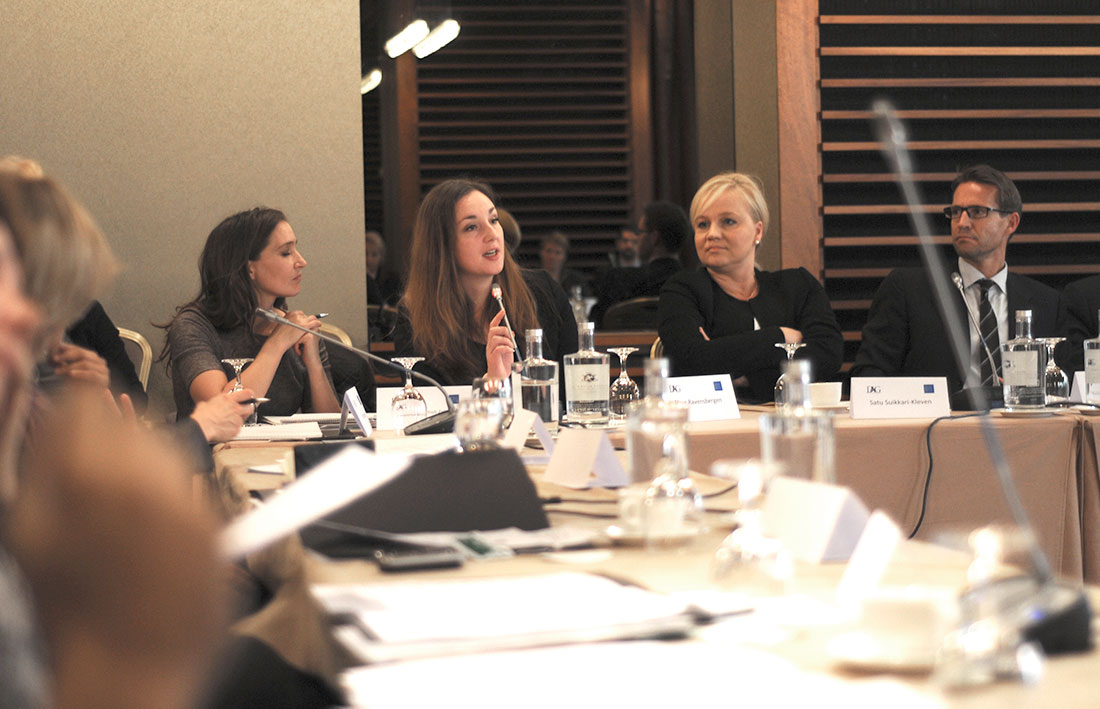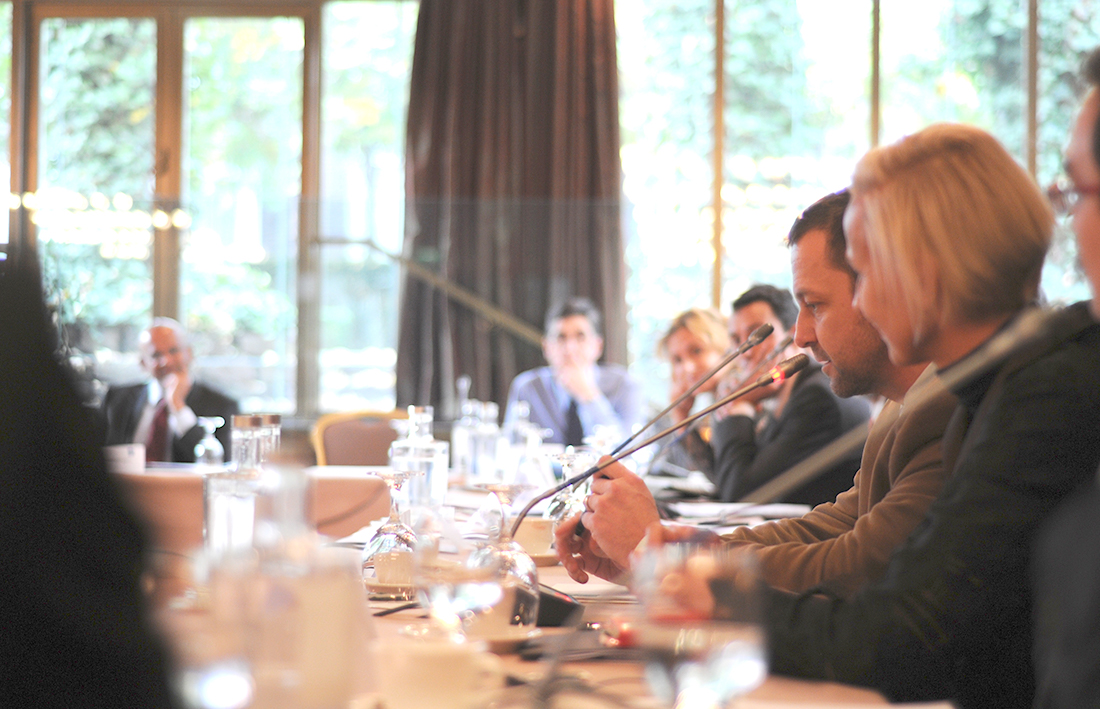Forty human rights advocates, mediation experts and European policymakers gathered in Amsterdam on 8 and 9 November 2011 for the second annual “Amsterdam Dialogue” – a high- level seminar for frank discussions between those mediating armed conflict and those promoting human rights.
The overarching theme of this year’s meeting was the interaction of peace and justice in the Arab Spring. Break-out sessions focused on concrete conflicts: Libya, Darfur and Sri Lanka. A fourth session addressed the state of academic research on the peace and justice debate. Two hours were also reserved for a dialogue with the Chief Prosecutor of the International Criminal Court, Luis Moreno-Ocampo.
The participants agreed that human rights had become an immovable object in international affairs. As one participant put it, human rights had “colonised the debate” on conflict. Whereas the human rights movement was at one time largely pacifist, today one frequently hears talk of a “human rights conflict” and a “human rights friendly peace.”
The gradual maturation of the ICC has further made justice an unavoidable factor for mediators. The independence of the ICC once it has launched an investigation leaves mediators with very few means of influencing the court short of requesting a UNSC deferral. As a result mediators will often need to adjust to the reality of the ICC as a judicial actor.
The seminar grappled with ways in which mediators could take advantage of this new reality, rather than lament the loss of useful tools, such as amnesties. As much as there are arguments for businesses and corporations to support human rights, one participant proposed, mediators might find ways in which accountability is good for the business of making peace.
An additional factor, some noted, is the expanding pool of mediators beyond the United Nations, to include states, regional organizations and NGOs. The diversity of mediators is accompanied by a diversity of attitudes and legal relationships with the ICC and other international tribunals and international criminal law. Today many actors are involved on different levels, with multi-track and multi-party processes.
AGENDA DAY 1, November 8
14:00 – 14:30 Coffee & Registration
14:30 – 16:00 Plenary with Introductory Comments
Mediation in the Age of Accountability
16:00 – 16:30 Break
16:30 – 18:00 Plenary session
ICC and Mediation: Interview with Louis Moreno Ocampo
AGENDA DAY 2, November 9
09:00 – 10:30 Parallel break-out sessions
10:30 – 10:45 Break
10:45 – 12:15 Parallel break-out sessions
Sri Lanka
State of academia: what we know about peace versus justice
12:15 – 13:00 Closing remarks
13:00 – 14:30 Lunch
